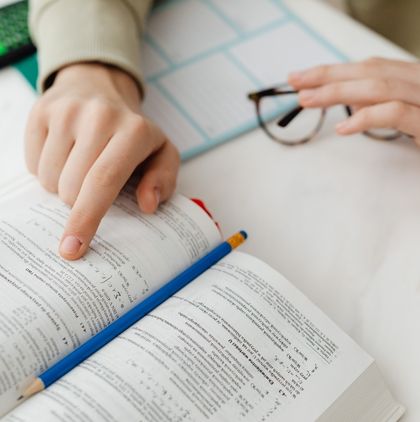
The legal profession has long drawn individuals with sharp intellects, outstanding advocacy abilities, and a passion for driving societal change. Many lawyers have gained global recognition, not just for their professional achievements, but for the significant impact they’ve had on the world. Here are the top 12 famous lawyers from across the globe, each celebrated for their influence, success, and dedication to justice.

There are 12 basic Problems in Education System of Pakistan, which are discussed in detail below:
Education is the foundation of personal and societal development, shaping future generations and equipping individuals with the skills and knowledge needed to succeed in life. However, many education systems around the world are facing significant challenges that hinder their effectiveness and accessibility. These problems range from outdated curricula to inequalities in access and lack of resources. Here are some of the most prominent issues plaguing the education system today.
One of the most pressing issues in global education is inequality in access. Across many countries, especially in developing regions, children from poor families or rural areas face significant barriers to receiving quality education. These include inadequate infrastructure, lack of schools, and limited access to educational materials. In many cases, gender inequality further exacerbates this problem, with girls often being denied the opportunity to attend school or pursue higher education.
Many education systems rely on traditional, outdated curricula that do not address the needs of today’s rapidly changing world. The focus is often on rote memorization and standardized testing, rather than developing critical thinking, creativity, and practical skills. As a result, students may graduate without the necessary skills to navigate modern technology, solve real-world problems, or adapt to evolving job markets.
A major obstacle to quality education is the shortage of skilled and trained teachers. In many regions, especially in rural or underserved areas, teachers are underpaid, overworked, and lack adequate training. This leads to poor teaching standards and high turnover rates. Without properly trained educators, students are less likely to receive the attention and support they need to succeed.
In many countries, especially those with large populations, classrooms are overcrowded, with teacher-to-student ratios that make individualized attention nearly impossible. Overcrowding leads to a lack of engagement, reduced learning outcomes, and increased classroom management problems. In such environments, teachers are often forced to focus on discipline rather than effective teaching.
Many education systems suffer from insufficient funding, which affects everything from teacher salaries to school infrastructure and learning resources. Without proper investment, schools cannot provide a high-quality education, resulting in poor student outcomes. In some countries, the lack of funding has led to the deterioration of school facilities, the lack of modern technology, and the inability to hire enough qualified teachers.
Standardized testing has become a significant aspect of modern education, but its overemphasis can be detrimental to students’ development. These tests often focus on memorization and don’t assess a student’s creativity, problem-solving abilities, or emotional intelligence. The pressure to perform well on these tests can create undue stress and anxiety for students, leading to burnout and disengagement from learning.
The growing reliance on technology in education has highlighted the digital divide — the gap between students who have access to modern digital tools and those who do not. In many areas, especially in rural or impoverished communities, students lack access to computers, high-speed internet, and other essential digital resources. This limits their ability to participate in online learning or take advantage of digital educational tools, exacerbating the inequality in education.
Students today face increasing levels of stress, anxiety, and mental health challenges. However, many education systems are not equipped to address these issues. There is a lack of counselors, mental health resources, and awareness programs in schools. The pressure to perform academically, combined with social and environmental stressors, can negatively impact students’ well-being, leading to issues like depression and burnout.
Education systems often prioritize academic knowledge over practical, hands-on skills. While traditional subjects like math, science, and language are important, students also need practical skills such as financial literacy, communication, time management, and technical abilities to succeed in today’s workforce. The disconnect between academic learning and real-world skills leaves many graduates unprepared for the challenges of adulthood and employment.
Students with disabilities or special learning needs often face significant challenges within mainstream education systems. In many countries, special education services are underfunded, poorly implemented, or simply unavailable. As a result, students with disabilities are not receiving the tailored support they need to succeed academically and socially, further contributing to inequality in education.
Bullying and violence in schools have become serious issues worldwide. Students who experience bullying often face mental health issues, decreased academic performance, and, in extreme cases, drop out of school altogether. Many schools lack effective anti-bullying programs and policies, and teachers are sometimes not equipped to handle these situations effectively.
Parental involvement is crucial to a student’s success, but in many cases, parents are either unaware of or unable to support their child’s education. Factors such as poverty, lack of education, or long working hours can make it difficult for parents to engage with their children’s academic progress. When schools and parents do not work together, it becomes harder for students to receive the support they need to thrive.
Despite the significant challenges, education remains a powerful tool for nation-building. It fosters a sense of duty, responsibility, and accountability in individuals. Educated citizens are better equipped to understand their rights and duties, both locally and globally. Education also promotes social cohesion and cooperation, which is essential for national development.
Moreover, education drives economic growth by preparing individuals for the workforce and encouraging innovation. A strong education system can help lift a nation out of poverty and contribute to its political and social stability. However, Pakistan’s education system has failed to provide these benefits due to its systemic issues.
Pakistan’s weak education system has contributed to many of the country’s problems, including poverty, sectarian violence, and terrorism. The lack of education and low literacy rates are major barriers to national progress. When people are not well-educated, they are more likely to fall victim to misinformation, violence, and instability.
Furthermore, Pakistan’s poor education system has prevented the country from achieving its full potential in areas like economic development, diplomacy, and social welfare. Without a strong educational foundation, it is difficult to address the country’s underlying issues and move towards a more prosperous and stable future.
Furthermore the problems in the education system are vast and complex, ranging from inequality and outdated curricula to teacher shortages and lack of funding. Addressing these issues requires a multi-faceted approach, including reforms in policy, increased investment in education, and a shift towards more personalized and inclusive teaching methods. By tackling these challenges, we can build a more effective, equitable, and future-ready education system that prepares students for the complexities of the modern world.
“Ahmed Ali Dewan & Co. is a trusted law firm specializing in intellectual property, criminal law, family law, and corporate law. We provide expert legal services tailored to your needs, offering professional guidance in complex legal matters. Contact us today”